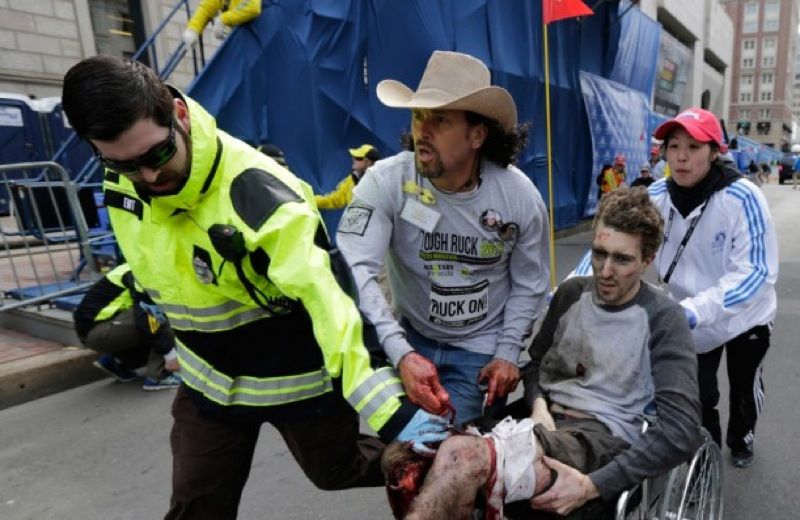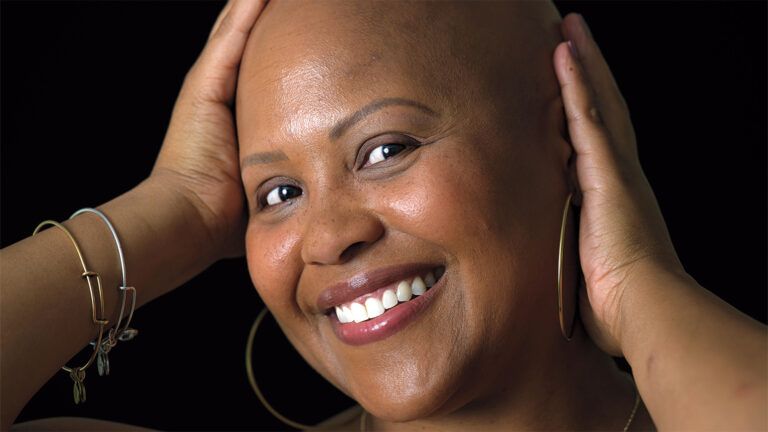Last Sunday, my sister ran the More Magazine/Fitness Magazine Women’s Half Marathon in Central Park, finishing in just over 2 hours, 10 minutes. My family met her after the race and we all went out for brunch together.
Over eggs we talked about how much her feet were throbbing, whether she’d gear up for the full marathon in the future. I joked that I couldn’t even sit on the couch for two hours straight, much less run that whole time. Mostly, it was just a happy occasion, getting to celebrate something my sister had been working hard for several months to accomplish, and we couldn’t have been prouder.
Maybe that’s why what happened the next day, the afternoon of April 15, felt so personal to me. I didn’t know anybody running the Boston Marathon, like our Angels on Earth Editor-in-Chief, Colleen Hughes, did, and I didn’t know any of the spectators there (my aunt, who lives in Boston, had dropped by the finish line much, much earlier). But I felt the whiplash, that jarring, scratched-record-like shift from the warm, giddy pride I’d felt on Sunday to the shockwave of terror and heartbreak that struck the very next day. A feeling, I imagine, that also reverberated through the crowd and the runners in the aftermath of the attacks.
The truth is, few of the people who run the marathon care too much about who wins the race—for the majority of these runners, it’s more of a competition with yourself, to push past the limits of your mind and find out just what your body is capable of doing. The endorphins, the feel-good chemicals in your brain, that are released from that accomplishment are more powerful than any drug—and they’re contagious too. Standing behind the metal barricades, cheering on wave after wave of runners, you can’t help but feel the rush of excitement wash over you. “Maybe I’ll run next year,” is a common phrase heard among the spectators. These runners sweat inspiration, not perspiration, and it flows down the street like a raging river, sweeping up people along the way.
The bombs seemed intended to destroy all of that. These runners and their familes wouldn’t be sitting down after the race, eating lunch together and celebrating their achievements. They’d be wondering how to deal with devastating injuries, the loss of loved ones. How can anyone cope with that? Rick Hamlin and Peola Hicks wrote eloquently about the power of prayer in times like these. And it does help. For me, however, it did little to lift the darkness.
I spent that evening online, looking through publicly available photos of the crowd, trying to make out a suspect or spot a suspicious bag. Revenge, finding the ones responsible for this, that would be the only cure. I wasn’t alone. Everyone wanted to know who—and right away. A few innocent people even got accused by Internet sleuths and the press. Clearly, it wasn’t a healthy or productive pursuit.
Then I started reading about what happened after the bombings.
I read about Carlos Arredondo. After his son was killed in Iraq, Carlos tried to kill himself by lighting himself on fire. A few years later, he lost his other son to suicide. But in the years since, he turned his grief into a mission to bring our soldiers back home. He was at the Boston Marathon handing out American flags to support servicemen participating in the race when the bombs went off. Instead of fleeing, Carlos ran toward the blasts. He found a young man, critically injured, and helped make a tourniquet to stop the bleeding. He stayed with the man until emergency workers arrived, talking to him, keeping him calm. Thanks in part to Carlos’ actions, the man, Jeff Bauman, is expected to survive. In fact, as we learned late Thursday night, Jeff was able to identify one of the two bombing suspects.
There were many more like Carlos, who ran toward danger rather than away, to help those who needed it.
Due to their actions, so many lives were saved, in a bombing that those responsible had clearly designed to be far deadlier.
A post on Facebook from one of the marathoners told of a smaller act of kindness. Diverted away from the finish line, Laura Wellington started walking down the street, not knowing if her family had survived. Finally, after some agonizing minutes, she got word that her family was safe. “I sat down and started crying. Just couldn’t hold it back,” Laura wrote. “At that moment, a couple walking by stopped. The woman took the space tent off her husband, who had finished the marathon, and wrapped it around me. She asked me if I was OK, if I knew where my family was. I reassured her I knew where they were and I would be OK. The man then asked me if I finished, to which I nodded ‘no.’ He then proceeded to take the medal from around his neck and placed it around mine.”
“You are a finisher in my eyes,” he told her.
Laura’s post was shared online and helped to connect her with the kind couple, Brent and Karin Cunningham.
These stories and others helped lift the darkness. The people who perpetrated this terrible crime placed bombs near the endless stream of runners, that river of inspiration, trying to divert the flow, trying to change something wonderful into something terrifying. But as these stories make clear, the bombers failed. The flow was disrupted for a moment, but it got going again, the current even stronger than before. Strong enough to bring out the helpers, saviors, good Samaritans, heroes—who showed us all what we should do when the forces of evil try to break us.
We must keep on running. And prove just what we’re capable of.






